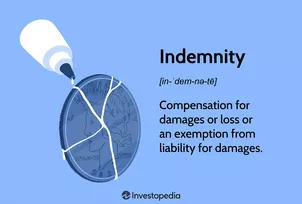Indemnity might sound like a complex term, but it’s actually a crucial concept in insurance that everyone should understand. In simple words, indemnity means getting compensated for any damage or loss. Let’s delve into what indemnity is all about and how it works in the world of insurance.
What is Indemnity?
Imagine you have something valuable, like a house or a car. You want to protect it in case something bad happens, like a fire or an accident. That’s where indemnity comes in. It’s like a promise from an insurance company that they’ll pay for any damage to your stuff.
How Indemnity Works:
When you buy insurance, you and the insurance company make a deal. You agree to pay them a certain amount of money, called premiums, regularly. In return, they promise to help you out if something bad happens to your insured stuff.
For example, if your house gets damaged by a fire, the insurance company will step in. They’ll either give you money to fix it or arrange for repairs themselves. So, you’re ‘indemnified’ – meaning you’re made whole again after the loss.
Indemnity Insurance:
Sometimes, people or companies need extra protection. That’s where indemnity insurance comes into play. It’s like insurance for insurance! Let’s say a doctor makes a mistake during surgery. Malpractice insurance helps cover the costs if the patient sues.
Why Indemnity Matters:
Understanding indemnity is important because it protects you from financial disasters. Whether it’s a small accident or a big disaster, having the right insurance can save you a lot of stress and money.
Conclusion:
Indemnity might seem like a big word, but it’s a simple concept. It’s about making sure you’re covered when things go wrong. By understanding indemnity and getting the right insurance, you can have peace of mind knowing you’re protected.

